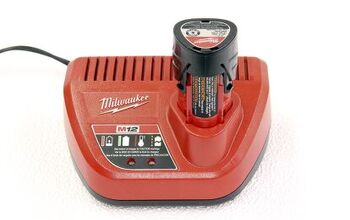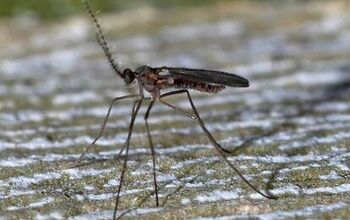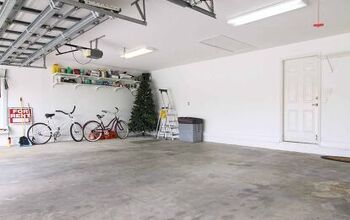What To Do If A Skunk Sprayed My Property/Backyard

Skunks may look cute, but there’s nothing cute about them when they spray you or your property. The smell can last for weeks, and it’s quite hard to remove from surfaces and clothing. Understandably, you may struggle with what to do if a skunk sprays your property or backyard.
Quickly prepare a mixture of dish soap, baking soda, and vinegar to scrub the surfaces the skunk sprayed. Place dishes of vinegar near the walls the skunk sprayed after you clean them to absorb the remaining odor. It also helps to replace your AC filter if the smell seeps into your house, or else it will spread throughout your home.
Sadly, you may need to throw some furniture and outdoor cushions or mats away if the spray seeps in too deep. Follow along as we explore what to do if a skunk sprays your property.
How To Get Rid Of Skunk Smell On Your Property
1. Scrub Outdoor Furniture
It can be quite difficult to remove skunk odor from outdoor furniture, especially if it’s upholstered. It can be an unpleasant process, but you can clean outdoor furniture that’s been sprayed by a skunk with some household items. All it takes is some dish soap, baking soda, and vinegar.
First, put on a face mask and some gloves to protect yourself from the foul odor. Carefully mix one teaspoon of dish soap, ¼-cup baking soda, and ¼-cup vinegar in a bucket or bottle. Next, scrub the furniture with the solution for as long as possible.
The alternative to this method is to mix 10% bleach with 90% water. Keep in mind that bleach can discolor furniture and fabric, so you must be careful. That’s why you must make sure to dilute it with plenty of water if you’d rather not use the baking soda, vinegar, and soap method.
2. Clean The Walls
Luckily, it’s much easier to remove skunk odors from your home’s exterior walls than you may think. Walls made of brick, vinyl, wood, and concrete don’t absorb skunk spray as much as fabrics. You can easily clean your walls with household items like bleach or vinegar.
Create a mixture that is equal parts water and distilled vinegar in a bottle or bucket. Put on a pair of thick gloves before you spray the wall. Scrub the wall thoroughly after you spray the mixture and repeat the process as many times as you need to.
You can also mix one part bleach with 9 parts water and use the same method to clean your walls. Be patient, as this process can take a while, depending on how much the skunk sprayed your walls.
3. Soak Up The Odor With Vinegar
It may sound crazy, but you can use dishes of vinegar to soak up skunk odors. Granted, you must first clean the areas where the skunk sprayed your property. However, smells can linger for days, so that’s why it’s a great idea to set out dishes of white vinegar.
Fill several dishes with white vinegar and set them around your backyard or affected area on your property. For example, place bowls full of white vinegar near the exterior wall that the skunk sprayed if that’s the problem area.
You may also need to place dishes of white vinegar inside if the skunk sprayed near an outdoor vent. In that case, the odor may travel inside, so you can use white vinegar to make it smell better in your house. Of course, the vinegar doesn’t smell great, but it smells better than skunk spray.
4. Replace Your Air Filter
When a skunk sprays your property, it affects both the inside and outside of your home. It depends on where the skunk sprays, but there’s a good chance that the odor will seep into your house. Once this happens, the smell will spread throughout your home because of your HVAC system.
You can stop the smell from getting trapped in your house if you replace your air filter. That said, the smell may still linger for a few days. In that case, you can use candles and essential oils to mask the odor until it disappears.
However, you may want to avoid opening your windows near the area where the skunk sprayed. Make sure that you don’t bring any clothes or outdoor decorations that got sprayed inside your home. That will only make the smell linger longer.
5. Throw Items Away If Needed
Unfortunately, skunk smells can linger for a long time, especially if you don’t notice them right away. Items made up of fabric and soft materials, such as cushions, quickly absorb odors. The longer the skunk spray sits on an absorbent surface, the harder it will be to clean.
This should be your last resort after you’ve already cleaned the items as much as possible. It may be worth it to simply cut your losses and throw it away if the item is easy to replace and still smells bad.
How Long Will Skunk Smell Last In My Yard?
Unfortunately, the smell of a skunk’s spray can last in a yard for up to 3 weeks. It ultimately depends on how much was sprayed, and where it landed. The smell will also last longer if you don’t catch it right away or are not able to clean it soon enough.
That’s why it’s important to clean the affected surfaces right away, no matter how hard it is. The problem will also continue if you have a skunk infestation in your neighborhood. Call a wildlife control service if you suspect a skunk infestation on your property or in your neighborhood.
The proper service depends on where you live and what laws they have about animal relocation. You can expect to pay up to $400 for skunk removal on your property. However, the cost may be covered by the state if the skunks inhabit many public spaces in your area.
Summing It Up
Quickly scrub your walls and outdoor furniture with baking soda, vinegar, and dish soap if a skunk sprays your property. You can also mix one part bleach with 9 parts water to scrub skunk spray off your home. In extreme cases, you may have to throw away outdoor decorations and even pieces of siding if the smell seeps in too deeply.
Related Guides:

Nick Durante is a professional writer with a primary focus on home improvement. When he is not writing about home improvement or taking on projects around the house, he likes to read and create art. He is always looking towards the newest trends in home improvement.
More by Nick Durante












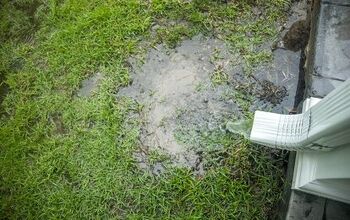
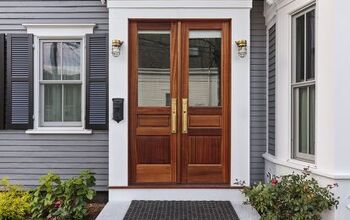
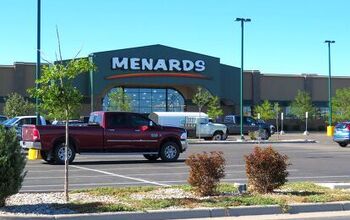

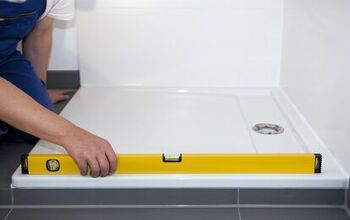
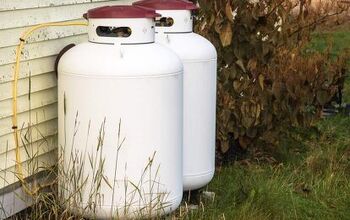
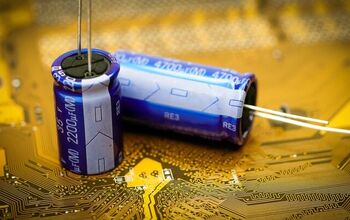
![12 Washing Machine Brands to Avoid [with Recall Data]](https://cdn-fastly.upgradedhome.com/media/2023/07/31/9075781/12-washing-machine-brands-to-avoid-with-recall-data.jpg?size=350x220)




